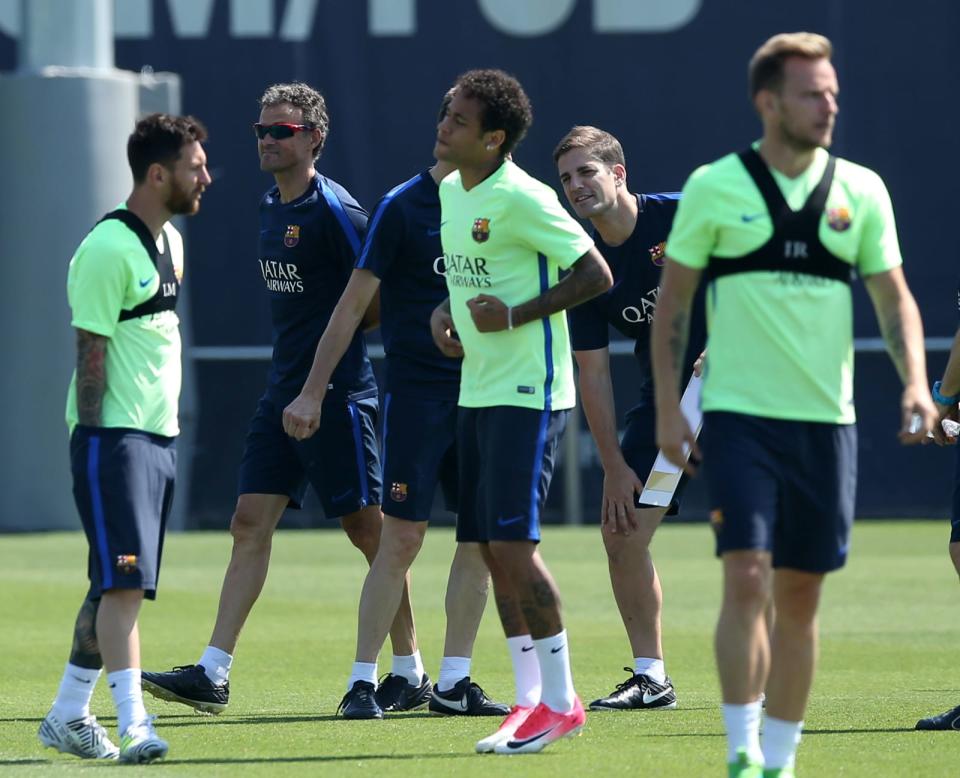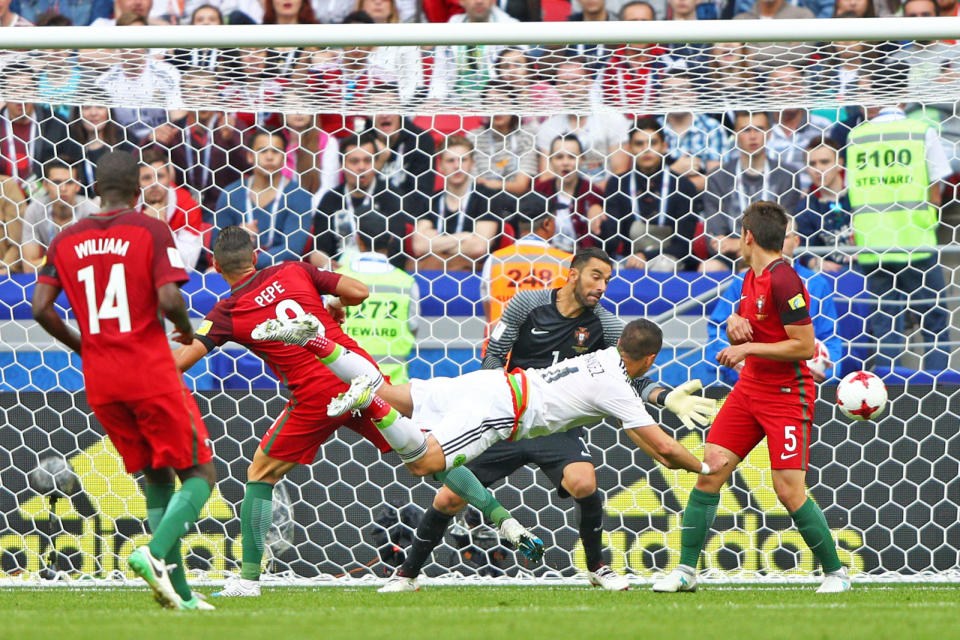FIFA envisions a future where players wear in-game fitness trackers
But data ownership might make this trickier than it seems.
Like it or not, soccer is moving into the modern era. For the past few years FIFA, the sport's governing body, has been working with the International Football Association Board (IFAB) to bring experiments like goal line technology and Video Assistant Referee to the game. But IFAB, which is responsible for creating and approving the rules of soccer, doesn't intend to stop there. In 2015, the organization announced plans to develop a global standard for Electronic Performance Tracking Systems (EPTS), with the goal being to let players use wearable tech in official matches. A decision on when and how EPTS will be implemented is set to happen next March, IFAB Secretary Lukas Brud confirmed to Engadget in an interview.
The devices that IFAB is looking to approve are designed to track players' fitness in real time, including their heart rate, distance covered, speed and fatigue levels. Players already use these types of gadgets in training, but now they want to wear them during actual games. Brud said Lionel Messi, arguably the sport's biggest star, is a major proponent of the EPTS project. And the same goes for his club, FC Barcelona, as well as others like Manchester City and Seattle Sounders, all of which are already experimenting with different EPTS devices.

Brud said one of the main challenges will be figuring out if the team or players own the data. In soccer, like in other sports, many professionals tend to move among teams every few years, so IFAB and FIFA need to decide what happens with someone's data when he's transferred to a new place. Additionally, companies that want an EPTS license will have to develop products with "preventative medical benefits" and that won't "pose a danger to athletes." So far, Brud said, there are about 50 firms working with teams and players on testing different devices.
Come March 2018, when members of IFAB and FIFA are expected to unveil the EPTS protocol, Brud said the next step will be to figure out the accuracy of hardware being pitched. Since the plan is to use them in a competitive stage, it's imperative that they're build to last and, most importantly, that players feel comfortable wearing them. That said, Brud had second thoughts about how much fitness trackers can help understand a player, because he believes it's hard to measure an individual's intangible attributes, like his or her raw talent or heart.
"I'm a bit worried about these things. Because if data says you're shit but you still score more goals than anyone else, then how can you really judge a player's performance?"
"I'm a bit worried about these things," he said. "Because if data says you're shit but you still score more goals than anyone else, then how can you really judge a player's performance?" Either way, IFAB and FIFA's decision to explore wearables is another sign that soccer is, finally, taking technology seriously. It may have taken decades, but at least the sport seems to be moving in the right direction.




